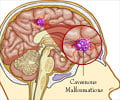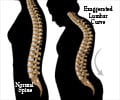Neurological disorders can be caused by environmental factors, including a herbicide that is used in US and currently banned in Europe.

TOP INSIGHT
Linuron, a herbicide and methyl carbamate, a compound used in textile, polymer and pharmaceutical industries increased astrocytes (cells in the brain and spinal cord) inflammation.
Quintana and colleagues started by investigating 976 chemicals from multiple sources ranging from industrial and consumer products to food additives. Known as the ToxCast chemical inventory, this broad collection was established by the U.S. Environmental Protection Agency (EPA) and made available to Quintana and colleagues for study. The team began by using a bioinformatic analysis to identify compounds that affected signaling pathways previously linked to multiple sclerosis. This analysis yielded 75 candidate compounds.
Using a novel zebrafish model of multiple sclerosis, the team added each compound to the water and evaluated the effects of each one on CNS inflammation. They narrowed in on five compounds that increased the activity of nos2a, a gene associated with inflammation. The researchers tested the compounds in mouse astrocytes--star-shaped cells that reside in the brain and spinal cord. They found that linuron, an herbicide, and methyl carbamate, a compound used by the textile, polymer and pharmaceutical industries, boosted inflammation in the astrocytes.
Linuron is an herbicide used in agriculture to kill grass and weeds. Although currently available in the U.S. and elsewhere, linuron was recently banned in Europe because of its potential risk to mammals. Using bioinformatic analysis, lab-based studies of cells from mice and patients with multiple sclerosis, gene editing, and computational modeling, Quintana and colleagues put together a molecular pathway through which linuron may drive inflammatory responses in astrocytes. Their findings highlight the role of Sigmar1, a membrane receptor that has been linked to the development of neurological disorders such as amyotrophic lateral sclerosis (ALS), a disease that has long been thought to have environmental contributors.
The researchers note that their findings are limited to the 976 compounds tested but that their approach could be scaled up if a larger library of chemicals is available for testing. These studies aim to identify candidate environmental exposures that affect central nervous system inflammation. However, the authors caution that follow-up epidemiological studies will be needed to further evaluate these findings and their implications in humans.
"Our findings support the need for systematic investigation of the effects of the 'exposome'--all of the environmental exposures people experience in their lifetime--on neurologic diseases and other conditions," said Quintana. "Studies of the exposome have the potential to identify unknown origins of inflammation and key environmental factors that may contribute to risk."
Source-Eurekalert
 MEDINDIA
MEDINDIA




 Email
Email




